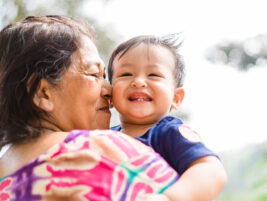This Spring/Summer issue represents a great deal of time and energy spent by those who have shared their work and submitted articles for review, as well as those who reviewed articles and gave authors careful feedback. Though the process is arduous, the end result is rewarding and challenges us to think about policy, research and practice in the developing field of infant mental health. Miri Keren, WAIMH President, shares poignant reflections about her trip to Japan where she observed play as a way to support resilience in children and communities following a trauma or disaster. Sherri Alderman, a developmental pediatrician from Oregon, describes, through a case study, how she has adopted a relationship-based approach as she integrates infant mental health principles into her practice with very young children and parents. Maria Lilja, a home visiting professional in Gothenburg, Sweden, offers a window into an antenatal and pediatric health care program for women with addiction programs, bringing prenatal and postnatal health care and parent support beginning in pregnancy and continuing for 6 month after the baby’s birth.
We received commentary, “Observations and Reflections,” from Katharin Hermenau, a psychologist from Germany, in response to Neil Rygaard’s column that appeared in the World in WAIMH in the winter issue of Perspectives. She challenges and reinforces the thought that “we need to catch up with the rapid changes in the settings in which infants grow up. We need to rethink our child development theories and test whether they still apply to reality and the world today.” Lynn Priddis and Rochelle Matacz, collaborators from Australia, celebrate the launch of the Competency Guidelines® to promote work force development and infant mental health more widely in West Australia. Sheryl Goldberg, a social worker with many years of experience in Michigan, USA as an infant mental health therapist, supervisor and consultant, offers her observations about reflective supervision drawing heavily on a research instrument, the RIOS (Reflective Interaction Observation Scale), developed by Christopher Watson and colleagues at the University of Minnesota in the USA. We end the issue with an article by Jennifer Malone and Carolyn Dayton, “What is the Container/Contained When There are Ghosts in the Nursery?: Joining Bion and Fraiberg in Dyadic Interventions with Mother and Infant,” in the Infant Mental Health Journal. (Vol. 36 No. 3).
We thank all of those who contributed to this spring and summer issue. Clearly, WAIMH’s perspective is worldwide, with contributions from Israel, Sweden, the USA, Australia, Germany, Switzerland, Scotland and Finland. An inclusive organization working on behalf of the wellbeing of all babies, their families and communities, we invite comments and contributions from all over the world. Be sure to share WAIMH Perspectives, an open source document, with others in your social media networks.
Vol. 23 No.3 Summer 2015 – From the Editors
Authors
Weatherston, Deborah J., Editor,
Michigan, USA,
dweatherston@mi-aimh.org,
Foley, Maree, Associate Editor,
New Zealand,
maree.foley@xtra.co.nz
Fitzgerald, Hiram E., Associate Editor,
Michigan, USA,
fitzger9@msu.edu,
Sparrow, Joshua,
Huber, Anna,
McLaughlin, Angela,
Contributing Editors




